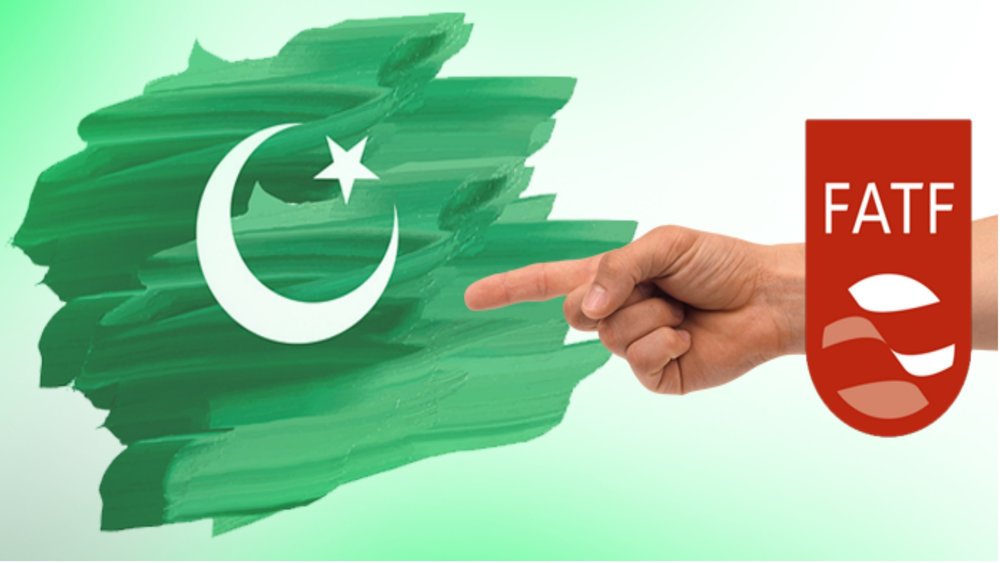Lists are nothing new. For years, they have been used to enumerate one thing or the other. All esteemed publications use them. Fortune, Time, Forbes you name it. Recently, there have been two lists that are the talk of the town. The FATF list and the Entity list!
Being on the FATF grey list is causing sleepless nights in Islamabad already. The powers to be fear that this may worsen to black and then all hell will break loose and economic difficulties will worsen. The reason is simple, Pakistan’s credibility for getting loans will get degraded at best and completely wiped out at worst!
The Financial Action Task Force on Money Laundering (FATF) was established in response to mounting concern over money laundering by the G-7 summit held in Paris in 1989. Recognising the threat posed to the banking system and to financial institutions, G-7 and President of the European Commission convened FATF with appropriate representation from the G-7member States, the European Commission and eight other countries. In October 2001, the FATF expanded its mandate to include efforts to combat terrorist financing. Then in April 2012, it widened its scope by adding efforts to counter the financing of proliferation of weapons of mass destruction. This is an intergovernmental organisation mainly setup at the behest of the G-7. As per its own charter, “the objectives of the FATF are to set standards and promote effective implementation of legal, regulatory and operational measures for combating money laundering, terrorist financing and other related threats to the integrity of the international financial system”. Countries neither heeding the FATF’s recommendations nor meeting its benchmarks are put on the FATF black list.
The Entity list is maintained by the US government, more specifically by the Bureau of Industry and Security (BIS). This agency of the United States Department of Commerce deals with issues involving national security and high-end technology. The principal goal of the BIS is “helping stop proliferation of weapons of mass destruction, while furthering the growth of United States exports”. As opposed to the FATF list, the Entity list doesn’t target countries but companies. Although in reality it is used to punish countries that earn the ire of the US! China being the recent case in point where Huawei the Chinese telecom giant has been put on the Entity list. Furthermore, no US company can have any dealings with a corporation on this list. Recently, Pakistan has found itself on the receiving end of both lists! There has been a concerted and coercive effort to put Pakistan on the FATF black list. The Entity list already has at least one Pakistani company with rumours of more to be added later.
Do these lists matter? No and Yes! No, if one believes in nationalist and isolationist tendencies. Yes, if the focus is on internationalism and engagement. In this connected world, one would rationalise that the latter view should prevail. Consider the impact being on this list will have on the three main tenets of Pakistan’s rebooted national security framework national purpose, national interests and national security policy objectives.
Pakistan’s national purpose is three-fold. One, Pakistanis are one united people regardless of race, language, culture, or religion. Two, Pakistan will be a democratic state and society based on Islamic principles of social justice and equality. Three, achieve affluence and happiness for all through the values of democracy, freedom, equality, and tolerance. Pakistan’s presence on the FATF list and the Entity list will directly threaten at-least the third national interest. Under severe economic and trade sanctions, it will be difficult to achieve prosperity and contentment for the population especially considering that freedom and equality will take a big hit. This, in turn, will hamper the unity of the Pakistani people in the face of great adversity.

Moreover, previous op-eds have categorised five Pakistani national interests. One, Pakistan should become a nationally harmonious country. Two, it should become a secure state especially with regards to its territory, citizens, and constitution. Three, Pakistan needs to be a successful economy and enhance the standard of its citizens through favourable social opportunities. Four, promote a morally stable and secure world governed by the rule of law. Five, initiate friendships globally by acting as a democratic and credible partner. Pakistan being mentioned as a candidate for the two lists actually confirms the fact that its credibility is being questioned, particularly when it comes to creating a secure world through adherence to the rule of law. This would curtail any favourable conditions for Pakistanis to enhance their quality of life by existing in a successful economy. Consequently, putting national harmony in disarray!
Additionally, using the defined national purpose and national interests of Pakistan, previous pieces have expressed Pakistan’s national security policy in one phrase principled and peaceful survival and unswerving social and economic growth through mutual co-existence, harmonious internally and externally. Spending too much time on these lists will prevent any meaningful social and economic growth and the world will take Pakistan not much for mutual and principled co-existence! In the new world, there are better ways to weaken a country than to engage it in wars! Thus, Pakistan needs to do whatever is realistically possible to ‘stay off’ the FATF list and the Entity list. Populist rhetoric can serve a nationalistic audience by taking a ‘don’t care’ attitude towards these international instruments but it will negate the two crucial national ends national purpose and national interests! That will never bode well in the long run!




